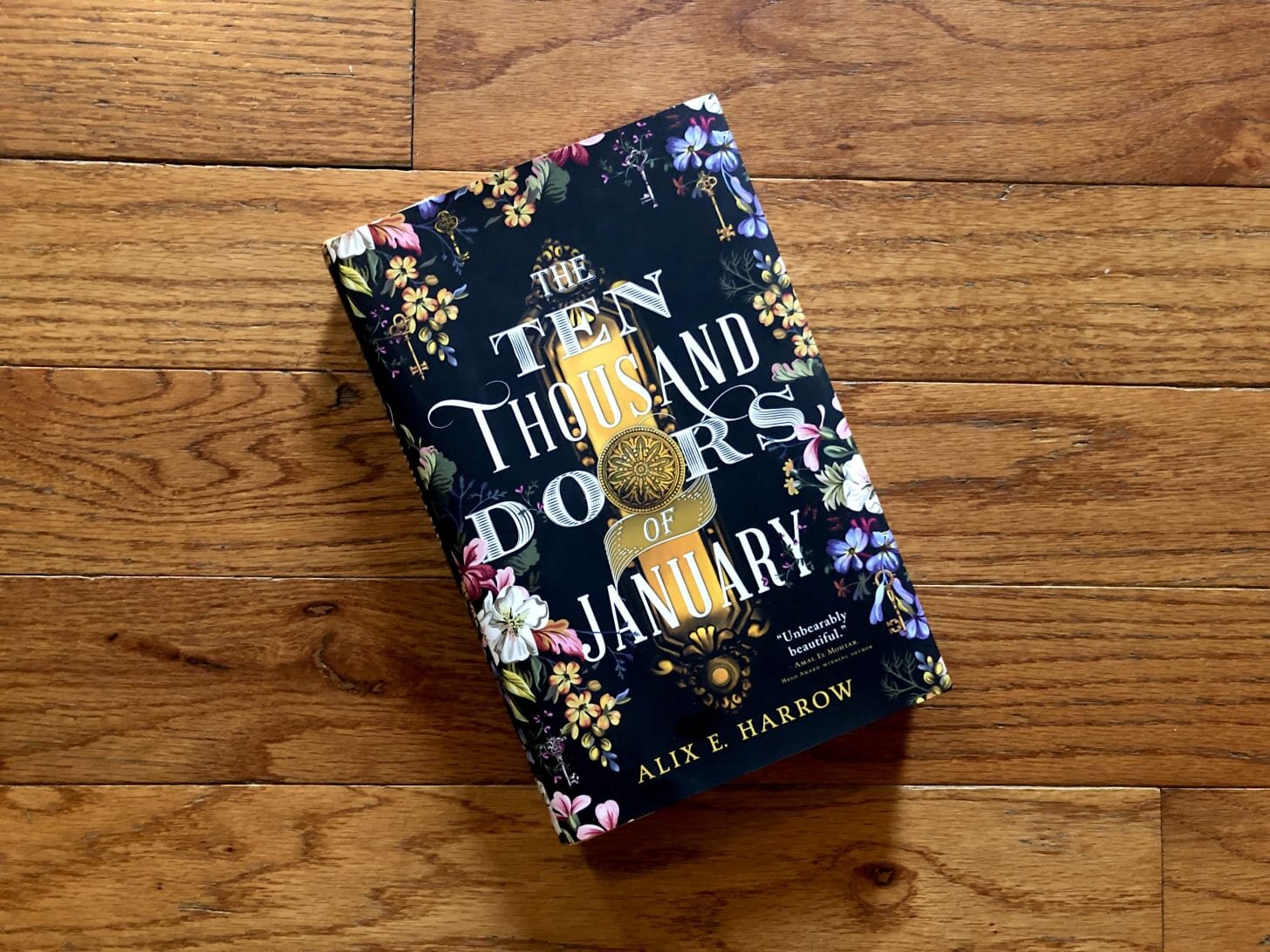Alix E. Harrow's The Ten Thousand Doors of January is a beautiful novel about the power of stories
/Alix E. Harrow's debut novel The Ten Thousand Doors of January is an astonishing, beautiful novel about the power of stories and the doors that they open.
Harrow introduces us to January Scaller, a young woman who's the ward of a wealthy patron named Mr. Locke. He lives in a mansion on the shores of Lake Champlain in Vermont, and has amassed a fortune and fancies himself as an amateur archeologist, collecting the curiosities from around the world to display in his home, or to sell to his wealthy friends. Locke employs her father to travel the world to find and procure objects for his collection, leaving January behind. When she's young, she accidentally comes across a door that leads her abruptly to another world, and later, discovers a book that tells of doors between a multitude of worlds, and that her own life is a key part of the story.
Speculative fiction is a genre that relies on tropes. Science fiction has its alternate reality stories, while fantasy has portal fantasies. Harrow's novel blends the two as January learns more about her past, her father, and the nature of Mr. Locke's collection. The book is part coming-of-age, part father-daughter narrative, and part thrilling adventure as January flees from her comfortable life in search of a family that she's scarcely known.
The book operates on a couple of levels. On one, Harrow examines the value of storytelling and diversity. In this particular world, she depicts stories and legends of fantastical creatures, monsters, magical abilities, and the like as a byproduct of a porous boundary between worlds: creatures and magic and stories leak through into our own. January's father (and others) is someone who tracks down stories to their origin, sometimes to alternate worlds. It's a wonderful thought: that the richness and prosperity of a creative society comes from the chaos of stories from different cultures and worlds.
On another, the novel examines the efforts people make to take advantage of the world, and to lock others out. Locke and his friends, as we find out, have benefited greatly from plundering treasures from other worlds, and seek to protect their own by shutting down the doors to other worlds. It's a tragic viewpoint, and Harrow makes the argument that it's a mindset brought on by extreme capitalism. By doing so, the book argues that a successful society is an open one, whereas a capitalistic one where a small number of people control the economy or its resources is will fail in the long run.
Those ideas power the adventure that January goes through. She's a mixed-race child, someone who doesn't quite fit in Locke's world, and upon learning of the presumed death of her father and making a couple of realizations about Locke's line of work and nature, she flees with the only friends she has in the world, trying to find her father and long-lost mother. The story takes a little while to get up and running, but once it begins firing on all cylinders, it moves. Harrow weaves together a powerful story about the nature of stories, the importance of family and love, and freedom. I don't often tear up over emotional swells in books, but this one brought out the water works by the end. It's certainly one of the best novels that I've read all year.

